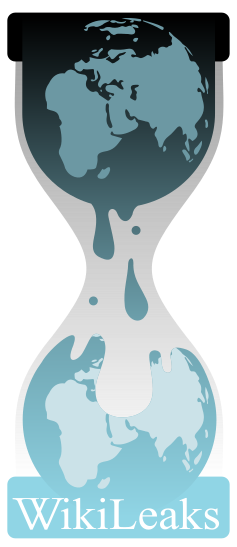(Reuters) - WikiLeaks founder Julian Assange, who has angered U.S. authorities by publishing secret diplomatic cables, was remanded in custody by a British court on Tuesday over allegations of sex crimes in Sweden.
Assange, a 39-year-old Australian, had earlier handed himself in to British police after Sweden had issued a European Arrest Warrant for him. Assange, who denies the allegations, will remain behind bars until a fresh hearing on December 14.
He has spent some time in Sweden and was accused this year of sexual misconduct by two female Swedish WikiLeaks volunteers. A Swedish prosecutor wants to question him about the accusation.
WikiLeaks, which has provoked fury in Washington with its publications, vowed it would continue making public details of the 250,000 secret U.S. documents it had obtained.
Defense Secretary Robert Gates welcomed news of the arrest. "I hadn't heard that but it sounds like good news to me," Gates told reporters during a trip to Afghanistan.
At a court hearing in London, Senior District Judge Howard Riddle said: "There are substantial grounds to believe he could abscond if granted bail."
He said the allegations were serious, and that Assange had comparatively weak community ties in Britain.
His British lawyer Mark Stephens told reporters a renewed bail application would be made, and that his client was "fine."
"We are entitled to appeal to a higher court, to the High Court, and we are also entitled to go again in the magistrates court at another date," he told reporters.
He said many people believed the prosecution was politically motivated, and that he would be "released and vindicated."
But a Swedish prosecutor was cited in newspaper Aftonbladet as saying the case was not a personal matter and was not connected with his WikiLeaks work.
CELEBRITIES OFFER TO STAND SURETY
Assange, dressed in a navy suit and wearing an open-neck white shirt, initially gave his address in court as a PO Box in Australia. Pressed for a more precise address, he gave a street in Victoria, Australia.
Australian journalist John Pilger, British film director Ken Loach and Jemima Khan, former wife of
Pakistani cricketer and politician Imran Khan, all offered to put up sureties to persuade the court Assange would not abscond.
Pilger, who offered 20,000 pounds ($31,600), told the court: "These charges against him in Sweden are absurd and were judged absurd by a senior Swedish prosecutor.
"It would be a travesty for Mr Assange to go within that kind of Swedish system."
Vaughan Smith, founder of the Frontline journalists' club in London, said Assange had worked out of the club for the past several months. Smith said he had offered him use of the club address for his bail request.
"I am suspicious of the personal charges that have been made against Mr Assange and hope that this will be properly resolved by the courts. Certainly no credible charges have been brought regarding the leaking of the information itself," Smith said in a statement.
The U.S. government and others across the world have argued the publication of cables is irresponsible and could put their national security at risk.
The WikiLeaks website was shut down after apparent political pressure on service providers, but WikiLeaks said there were now 750 global mirror sites meaning the data so far released remained publicly available. More cables would be released later on Tuesday, it said.
Lawyer Gemma Lindfield, representing the Swedish judicial authorities, said the extradition case contained allegations of four sexual assaults by Assange against two women in Stockholm in August 2010. One charge over Miss A is that Assange "sexually molested her" by ignoring her request for him to use a condom when having sex with her.
Another charge relates to "Miss W," who alleged Assange had sex with her without a condom while she was sleeping on August 7.
Swedish prosecutors opened, then dropped, then re-opened an investigation into the allegations. The crime he is suspected of is the least severe of three categories of rape, carrying a maximum of four years in jail.
Assange's Swedish lawyer has said his client would fight any extradition and believed foreign powers were influencing Sweden.
Swiss PostFinance, the banking arm of state-owned Swiss Post, has closed an account used for WikiLeaks donations and online payment service PayPal has also suspended WikiLeaks' account. Visa Europe said on Tuesday it had suspended payments to the WikiLeaks website.



















